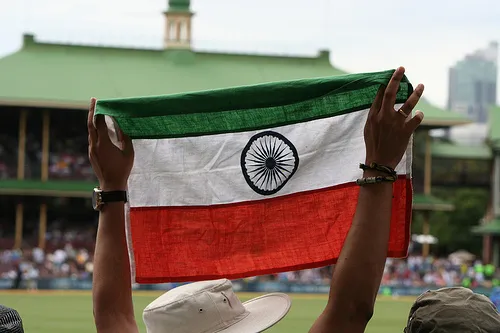
Seriously, there are 5 good things about India's diesel price deregulation
That's if diesel prices will rise by ~20%.
According to Nomura, because of the political sensitivity on diesel, it thinks the government‟s decision to partially deregulate diesel prices is a positive move.
Currently, oil-marketing companies (OMCs) incur a loss of around INR9.6/litre on diesel. According to media reports the Oil Minister commented that the OMCs will be allowed to periodically raise diesel prices by a small amount until they recover the entire loss, i.e. a phased hike in diesel prices.
Assuming that diesel prices are raised by INR9.6/litre (~20%) in one-shot (an extreme scenario), the direct inflation impact on WPI inflation will 120bp and the fiscal subsidy burden may fall by 0.3% of GDP on an annualized basis.
Here's more from Nomura:
As diesel prices are hiked, oil import volumes may moderate, also aiding the current account deficit. However, we would make the following additional comments on today's decision:
1. There is unlikely to be any impact on fiscal finances in FY13 (year ending March 2013) as under-recoveries on LPG are likely to rise and there is already a large pending subsidy payment to OMCs for the first three quarters of FY13 (Note: the government budgeted INR436bn on oil subsidies in FY13).
2. The main question is whether the deregulation is a reality or just on paper. Note that the government had completely deregulated petrol prices back in 2010. However even today oil companies need the approval of the government on both the timing and the quantum of the petrol price increase.
As petrol is fully deregulated, OMCs are not compensated for any losses they suffer on petrol. We expect the government to continue to dictate to OMCs on diesel prices as they have been only "partially‟ deregulated.
3. Even if OMCs raise diesel prices by a small amount for the initial few months, it is their ability to hike prices on a sustained basis until losses are eliminated that today‟s announcement will make a real difference to India‟s twin deficits.
4. Politics matters. The government‟s inability to hike LPG prices today suggests that it will be politically challenging to completely deregulate diesel prices in a pre-election year, even if decision making has been thrust on to OMCs.
5. From the Reserve Bank of India‟s perspective, we think a hike in diesel prices will be a medium-term positive. However, as it will lead to an immediate rise in input costs, the RBI will have to be vigilant against any second-round inflationary effects.








![Cross Domain [Manu + SBR + ABF + ABR + FMCG + HBR + ]](https://cmg-qa.s3.ap-southeast-1.amazonaws.com/s3fs-public/styles/exclusive_featured_article/public/2025-01/earth-3537401_1920_4.jpg.webp?itok=WaRpTJwE)









 Advertise
Advertise


